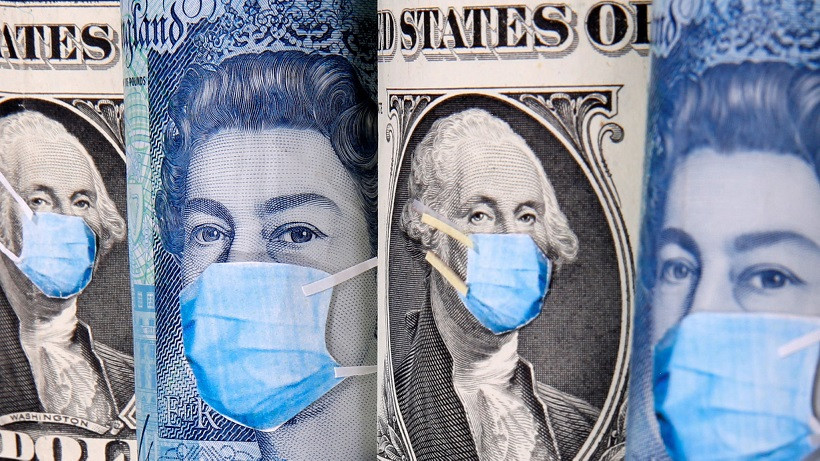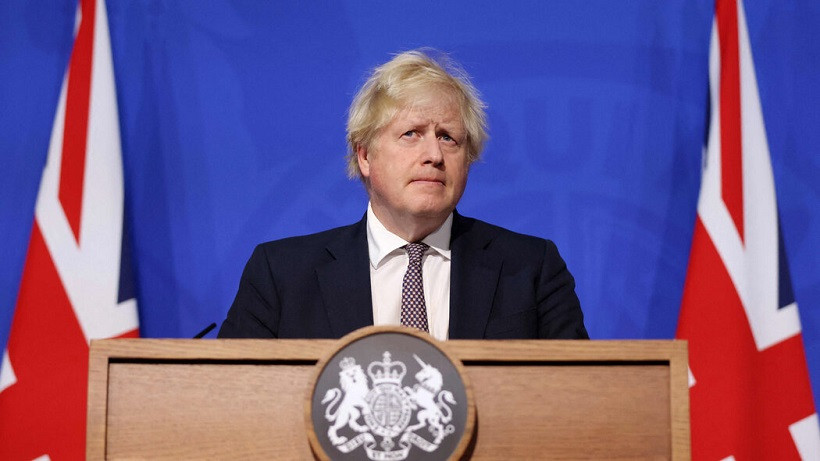The pound-dollar pair updated its almost annual price low, reaching 1.3277 on Friday. The last time the pair was in this price area was in December 2020. Towards the close of Friday's trading, the price corrected against the background of a sharp weakening of the greenback. But the GBP/USD traders still failed to reverse the trend. Today, the pound is losing ground again, heading towards the base of the 33rd figure.

The downside dynamics is due not so much to the "stress tolerance" of the dollar, as to the weakening of the pound. The unresolved trade and political conflict between London and Brussels exert the strongest pressure on the pair.
The weeks-long negotiations ended in vain, while the parties continue to "scare" each other with the rupture of trade relations, sanctions, and even trade confrontation. At the forefront of the attack from the EU are the French, who initially took the toughest position on the issue of Brexit in relation to the British.
According to the French edition of Le Monde, relations between the UK and France are "at a low point over the past few years." Journalists stated that relations deteriorated during the negotiations on the terms of Brexit. The situation did not improve when the UK left the European Union. On the contrary, the implementation of the Agreement on Britain's withdrawal from the EU has only exposed new problems. In particular, Britain refused to issue licenses to French fishermen (to the extent required by France). In response, fishermen plan to hold a protest action in the near future, disrupting shipping traffic through the English Channel.
Later, the migration crisis was added to the "fish issue." For example, last week, French President Emmanuel Macron did not hesitate to criticize the statement of British Prime Minister Boris Johnson, in which he called on the French authorities to "take back migrants who reach Britain through the strait." The French leader called London's position "the height of frivolity" against the background of the tragedy that occurred last week (27 migrants, including children, drowned on their way to British shores).
As a result, another diplomatic scandal broke out between the countries, which aggravated the larger political conflict between Britain and the EU. It is related to the implementation of the provisions of the Northern Ireland Protocol.
At the end of last week, Johnson once again threatened to resort to article 16 of the protocol, which suspends the operation of this agreement. According to Johnson, London "will have to take such measures" if negotiations with the European Union do not bring results. In response, Brussels again threatened the European Court of Justice. According to the court's decision, the British may receive significant fines, and a trade war may begin between the UK and the European Union, in which the EU will impose sanctions on British exports.
To date, the parties are still in the framework of the negotiation process, but, according to Johnson, "a significant distance" still exists between the positions of the UK and the EU.
Thus, the "echoes" of Brexit and the diplomatic conflict with France put pressure on the pound. These fundamental factors "drown out" the representatives of the BoE, who are sounding hawkish signals. And the situation with the coronavirus does not allow the GBP/USD bulls to "spread their wings."

There is conflicting information about the new variant of COVID-19. On the one hand, some experts argue that Omicron has a "mild enough" effect on the body. According to them, the presence of three dozen mutations in the strain destabilizes the virus. In addition, at the moment there is no exact data on how much Omicron reduces the effectiveness of vaccines. Scientists urge not to make hasty conclusions, since talking about drug resistance to a new strain should only be based on observations of countries where a high percentage of vaccinated people and where this strain is spreading.
And yet, most experts agree that the new modification of COVID is more dangerous for the unvaccinated. The likelihood that existing vaccines do not protect against Omicron at all is "very, very unlikely." Most likely, virologists will establish a decrease in the effectiveness of some vaccines by only a percentage or even a fraction of a percent. Also, some scientists admit the option that Omicron will help create collective immunity around the world, due to its mild effect on the body against a background of high pathogenicity. That is, there will be a kind of forced "vaccination" by airborne droplets. But this theory so far is purely hypothetical.
Markets are in no hurry to draw conclusions, but they have already stopped panicking. The "Friday boom" did not continue - the dollar is gradually recovering its positions, winning back lost points. The pound, in turn, is under pressure from "its own" problems, therefore it moves in the wake of the American currency.
Taking into account the current circumstances, it is quite risky to open longs for the GBP/USD pair. It is advisable to use upside rollbacks to open short positions with the first target at 1.3277 (price low of the year). The main support level is located slightly lower at 1.3250, which corresponds to the lower line of the Bollinger Bands indicator on the D1 timeframe.
The material has been provided by InstaForex Company - www.instaforex.com